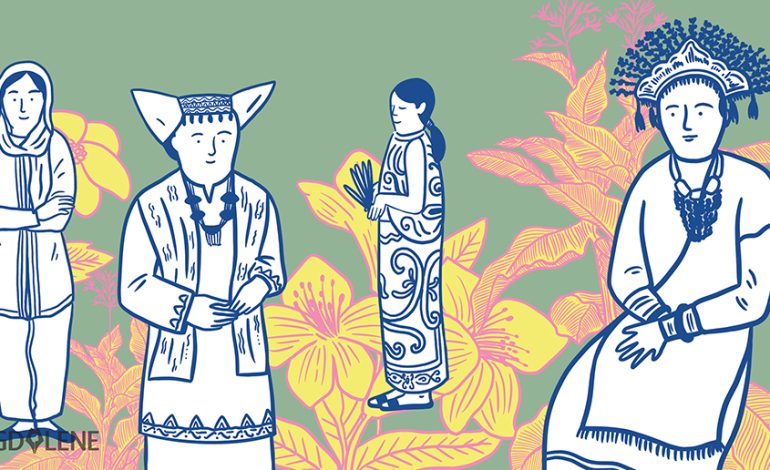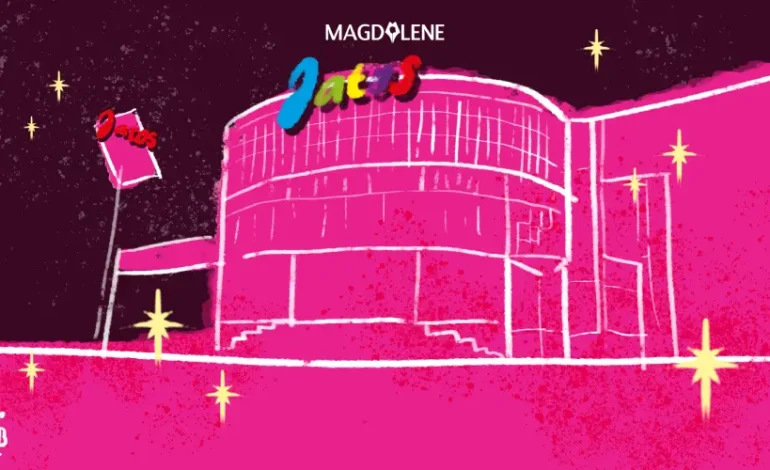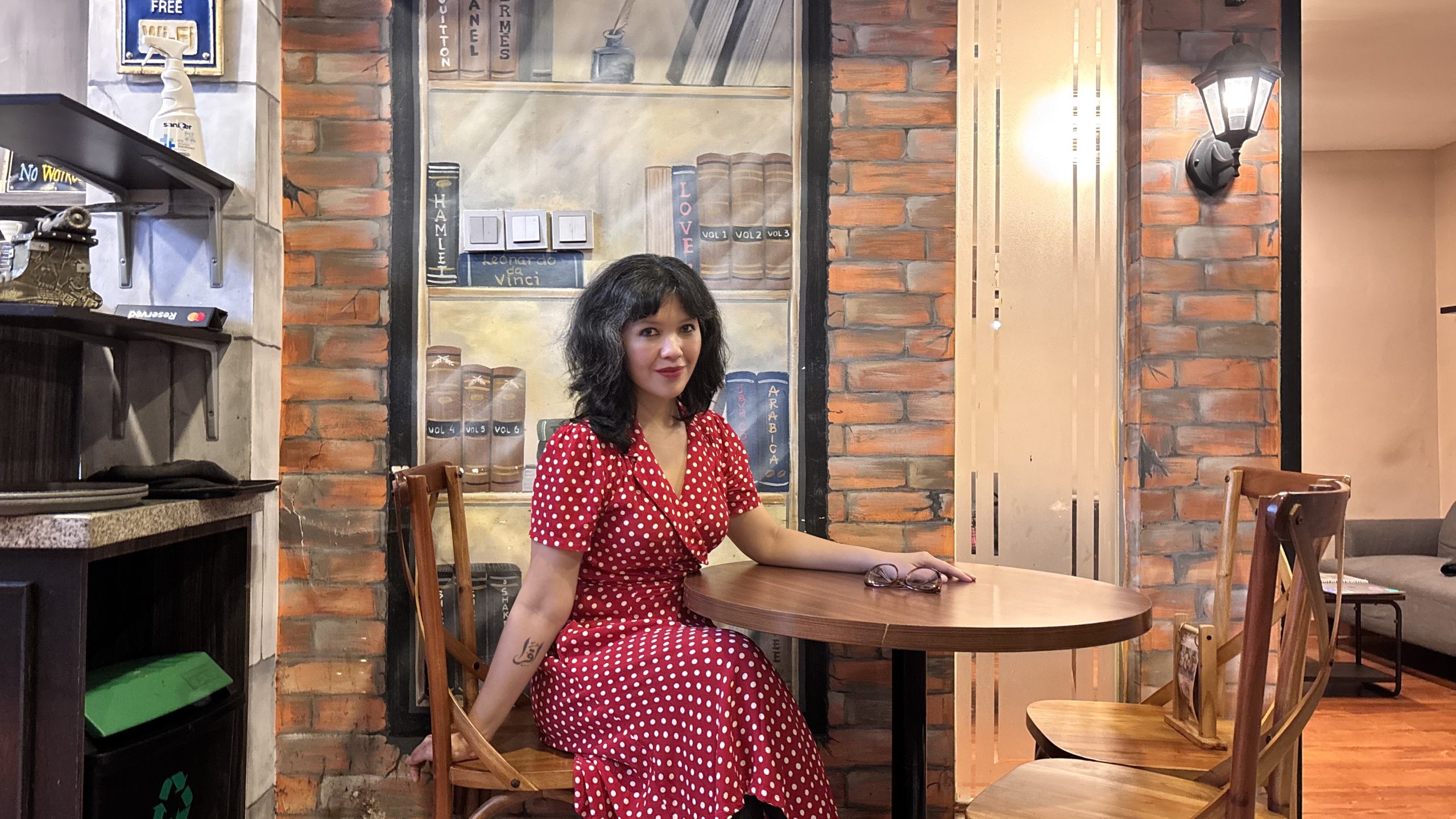Movements and Moments: Indigenous Feminism from the Global South

The first trans school in Latin America, an Indigenous leader from the northern Ecuadorian Andes who spent her life fighting for equality, and the evolution of Pakistan’s feminist digital rights movement – these are only three examples of the rich and compelling stories in the form of comics and graphic novels that found their way into “Movements and Moments – Feminist Generations.”
The project, initiated by the Goethe-Institut Jakarta, aims to highlight feminist voices from the Global South, as the established narratives of feminism are still told through a predominantly white and Western perspective.
The idea for “Movements and Moments” dates back to 2018, when co-programmer Sonja Eismann, a journalist and co-founder of German feminist Missy Magazine, helped to organize a networking travel trip for feminist activists from South East Asia, Australia and New Zealand to Berlin.
“It was a wonderful experience to spend ten days with these inspiring activists who all had a connection to feminism and popular culture,” Sonja recalls. “Luckily, Anna-Maria Strauß, who at the time was the Goethe-Institut Jakarta’s head of cultural programs, brought us all together again in early 2019 for a series of workshops in Jakarta to find out together what would make this project more sustainable.”
One topic that came up repeatedly, she adds, was the lack of feminist archives in the participants’ countries, often due to a lack of resources and funding.
“The idea was to tell people in their respective regions and countries about feminist battles that would otherwise be lost, because they are still largely ignored by official historians,” Sonja explains.

Credit: Vanessa Peñuela and Cesar Vargas
They eventually settled on comics and graphic novels as a format, since it is a highly accessible, pop cultural and at the same time aesthetically interesting and progressive way to convey a story. The Goethe-Institut eventually greenlit the proposal for a feminist publication.
Maya, program coordinator at the Goethe-Institut Jakarta, says that they quickly agreed to hold an open call to look for feminists, artists and activists who were interested to join the project instead of work by commission.
“We wanted to expand our possibilities, and from a very wide selection, we decided that Indigenous feminism from the Global South would fit well as the main narrative, since it is still underrepresented in the worldwide discourse on feminism,”
After only six weeks, she adds, they had received 218 applications from 352 applicants in 42 countries – and were swept away by this enthusiastic response. The final selection was then made by a jury that represented distinctive perspectives and diverse backgrounds: Auá Mendes, an Indigenous feminist graphic artist from Brazil, Urvashi Butalia, a senior feminist publisher and writer from India, Johann Ulrich, a publisher from Germany, as well Sonja and Maya herself.
“Initially, we only wanted to have ten stories published in print, but added eight more to be published online, due to the impressive quality and quantity of the applications,” Maya says. “Together with the authors, we are beyond grateful and excited to have the opportunity to build a meaningful anthology and share these valuable stories and knowledge on female solidarity to counter social and state repression.”
The stories, which can already be found online and will be printed as an anthology later on, shed light on the most marginalized and underexposed aspects of feminist protests.
Vanessa Peñuela and Cesar Vargas from Colombia tell the tale of the anarchist cholas, a group of Indigenous women unionists from Bolivia in the first half of the 20th century that helped to solidify the labor movement in Bolivia by forming the Feminine Workers Federation (FOF). Today, however, their fight to defend the rights of working women from a government that discriminated them because of the Indigenous ancestry is largely forgotten.
“I was very intrigued by this story because it is a topic that too many people, including myself, know next to nothing about,” Sonja says. “I feel very inspired that these women, who were and are marginalized and discriminated against, had the power to self-organize against labour exploitation almost 100 years ago.”
Also read: #Fempop: Empowering Women through Pop Culture
Reetika Revathy Subramanian and Maitri Dore from India highlight the story of Godavari Dange. After dropping out of school at 13, being married at 15 and widowed four years later, the young woman has dedicated her life to build Indigenous, sustainable climate solutions like her innovative “one-acre model” as an answer to the country’s agrarian crisis in Marathwada, where she grew up.
Consuelo Terra and Greta di Girolamo from Chile introduce another powerful personality: Millaray Huichalaf. The 29-year-old is a spiritual guide and healer of her Mapuche Indigenous commune in the south of Chile. She is also the leader of the resistance against Statkraft, a Norwegian state company that builds hydroelectric plants. These plants however threaten to destroy the delicate ecosystem of Pilmaiken, a river that is sacred to Millaray Huichalaf’s culture.

Credit: Reetika Revathy Subramanian and Maitri Dore
Many of the participants worked together in groups of two or three, with each team having the option to consult with the project mentors, Amruta Patil and Nacha Vollenweider.
“They each had a unique approach, style, and method that the authors could benefit from,” Maya explains the role of the mentors. “The mentors were there to guide and advise them through dedicated sessions and other channels during the production.”
Some of the authors, she adds, did not yet have experience in making long-form comics and struggled with different issues from how to create a dialogue based on interviews and research to proper time management.
Also read: Smashing Patriarchy and Calling Out Hypocrisy One Comic Strip at a Time
“Others were concerned about the ethics of representation, both visually and conceptually, because some of them don’t belong to the same community the protagonist in their stories comes from, and they wanted to adequately represent their struggles,” Maya adds.
In the end, the result is a striking and colourful addition to non-Western feminist endeavours – through this project, these hidden voices and biographies finally come to light and take their rightful place among feminist movements worldwide.
You can find more information about the project here.
Header illustration by Karina Tungari






















